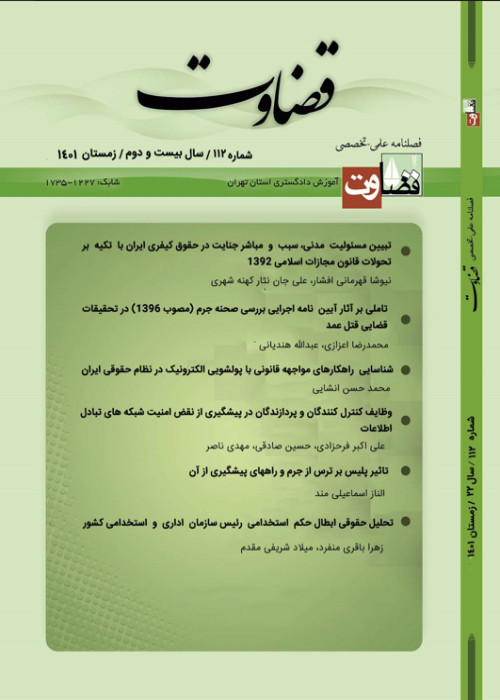The study of right to mental health by performing a comparative study of citizenship rights charter and the international human rights system
The second generation of human rights is rooted in the human needs and ascendency, and is called positive rights or equal rights. This category of rights explains the musts in the behavior of the government towards the citizens. The musts that lead to providing the equality of citizens in enjoying the minimum requirement for living based on dignity. It should be noted that the of right on health is placed in the second generation of human rights, that is, welfare rights, and the International Covenant on Economic, Social and Cultural Rights has addressed this right in Article 12. Meanwhile, mental health as one of the most important aspects of health has been given attention to a certain extent along with physical health in general and has been reflected in various international human rights documents. Mental health is an integral and fundamental part of the health of every individual. In return, it is obvious that by recognizing any right, including the right to mental health, as a human right, duties will be envisaged as well. Governments, as the most important actors in the international arena, are obliged to take steps to ensure and respect human rights both at domestic and international levels. In the international context, the right to mental health has been taken into consideration in the framework of United Nations actions, the actions of the International Committee of the Red Cross, the actions and documents of the European Union, the World Health Organization and in the framework of international labor documents. The main emphasis of international documents is on the right to mental health in the framework of armed conflicts and in the context of protecting vulnerable groups, including children and women.By comparing the citizenship rights charter and international documents, it should be said that in the charter of citizenship rights, there are also statements about the rights to life, health, and quality of life, and prohibition of torture, which are of the predisposing factors of mental health. The government is obligated to take necessary measures in this regard. However, in the Charter, no article is found that is exclusively dedicated to the right to mental health. In this descriptive-analytical research, we will try to examine the right to mental health by carrying out a comparative study of citizenship rights charter and the international human rights system, and also examine the guarantees and provisions of international law regarding the issue of mental health in Iranian law.
- حق عضویت دریافتی صرف حمایت از نشریات عضو و نگهداری، تکمیل و توسعه مگیران میشود.
- پرداخت حق اشتراک و دانلود مقالات اجازه بازنشر آن در سایر رسانههای چاپی و دیجیتال را به کاربر نمیدهد.


